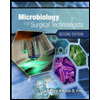Presentation: 32 year old male presents with four genital lesions which he states have been present for about 3 days. They first showed up about 5 days after receiving oral sex from a new partner. They are tender and are in various states of development – some are vesicular, others are partly ulcerated and others are even partly scabbed over and are classically herpetic in their appearance. You aggressively swab the lesions and send the sample to the lab for PCR (polymerase chain reaction) testing and typing, if the sample is positive. The PCR comes back positive for HSV 1. The patient is very upset about having genital herpes, and though you explain that HSV 1 recurs less often and sheds virus less often than HSV 2, he is still agitated and unhappy. You treat the outbreak with antiviral therapy and discuss future treatment options with him. He opts to forgo more treatment for the time being. Laboratory evaluation and explanation: A year later, he returns to your clinic wanting to confirm that the first lab test was correct because he has had no further symptoms and now doesn’t believe that he has genital herpes after all. He asks you to draw blood for type specific antibody testing. You do, and the test comes back negative for HSV 1 and HSV 2 IgG antibody. The lab has added an IgM test, which you did not request, and it is positive for HSV 2. The patient is upset, believing that he has been wrongly diagnosed in the first place, and really confused about the IgM test because he hasn’t had any sex of any kind since he was diagnosed with HSV 1 genital infection. You are also very confused by these results. You need to keep in mind that the sensitivity of the HSV 1 IgG test, in an STI clinic population, is about 91% - that is, it misses almost one our of every 10 cases of HSV 1 infection. In this case, you should rely solely on the results of the swab test that you gathered from the lesions on his penis. He has HSV 1 genital infection, and the serology missed the infection. It is not necessary to confirm a positive swab test diagnosis when the swab has been gathered from genital lesions. In this case, the patient wants more lab testing done. The herpes western blot test from the University of Washington is slightly more sensitive for HSV 1 than the ELISA testing commonly done at large labs – about 93%. Bloods are sent to UW and they come back5 positive for HSV 1, negative for HSV 2. The IgM test results should be completely ignored. IgM tests should not be done to try to diagnose herpes as they are not type specific, not virus specific, and the IgM reaction is often present in people with recurrent disease. Outcome: The patient still isn’t happy, but at least he has clarity about his diagnosis. Question: How would this scenario play out if the patient was a woman (by our definition of reproductive parts, hormone levels and genetics)?
Presentation:
32 year old male presents with four genital lesions which he states have been present for about 3 days. They first showed up about 5 days after receiving oral sex from a new partner. They are tender and are in various states of development – some are vesicular, others are partly ulcerated and others are even partly scabbed over and are classically herpetic in their appearance. You aggressively swab the lesions and send the sample to the lab for PCR (polymerase chain reaction) testing and typing, if the sample is positive. The PCR comes back positive for HSV 1. The patient is very upset about having genital herpes, and though you explain that HSV 1 recurs less often and sheds virus less often than HSV 2, he is still agitated and unhappy. You treat the outbreak with antiviral therapy and discuss future treatment options with him. He opts to forgo more treatment for the time being.
Laboratory evaluation and explanation:
A year later, he returns to your clinic wanting to confirm that the first lab test was correct because he has had no further symptoms and now doesn’t believe that he has genital herpes after all. He asks you to draw blood for type specific antibody testing. You do, and the test comes back negative for HSV 1 and HSV 2 IgG antibody. The lab has added an IgM test, which you did not request, and it is positive for HSV 2. The patient is upset, believing that he has been wrongly diagnosed in the first place, and really confused about the IgM test because he hasn’t had any sex of any kind since he was diagnosed with HSV 1 genital infection. You are also very confused by these results.
You need to keep in mind that the sensitivity of the HSV 1 IgG test, in an STI clinic population, is about 91% - that is, it misses almost one our of every 10 cases of HSV 1 infection. In this case, you should rely solely on the results of the swab test that you gathered from the lesions on his penis. He has HSV 1 genital infection, and the serology missed the infection. It is not necessary to confirm a positive swab test diagnosis when the swab has been gathered from genital lesions. In this case, the patient wants more lab testing done. The herpes western blot test from the University of Washington is slightly more sensitive for HSV 1 than the ELISA testing commonly done at large labs – about 93%. Bloods are sent to UW and they come back5 positive for HSV 1, negative for HSV 2.
The IgM test results should be completely ignored. IgM tests should not be done to try to diagnose herpes as they are not type specific, not virus specific, and the IgM reaction is often present in people with recurrent disease.
Outcome: The patient still isn’t happy, but at least he has clarity about his diagnosis.
Question: How would this scenario play out if the patient was a woman (by our definition of reproductive parts, hormone levels and genetics)?
Trending now
This is a popular solution!
Step by step
Solved in 2 steps









